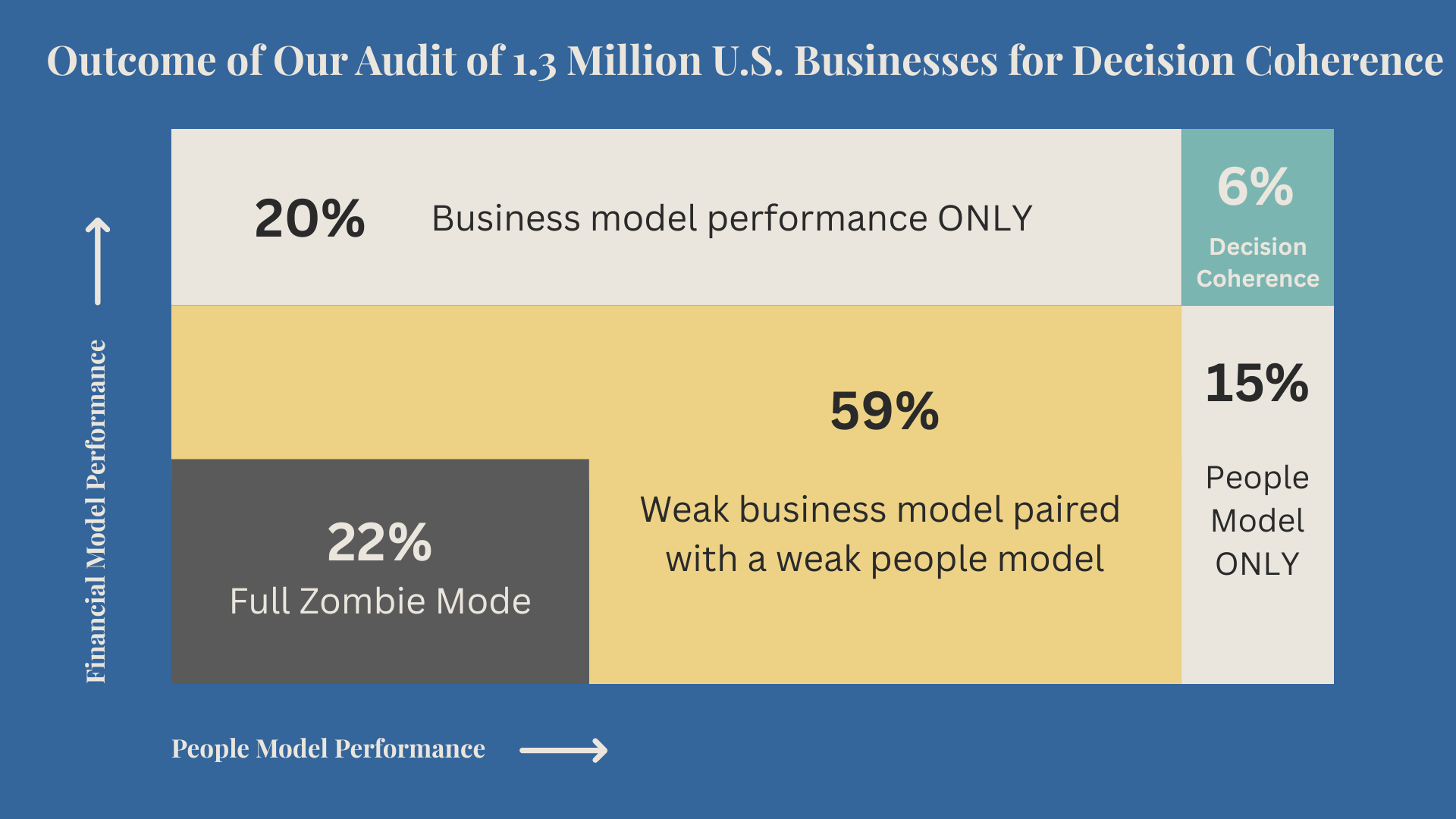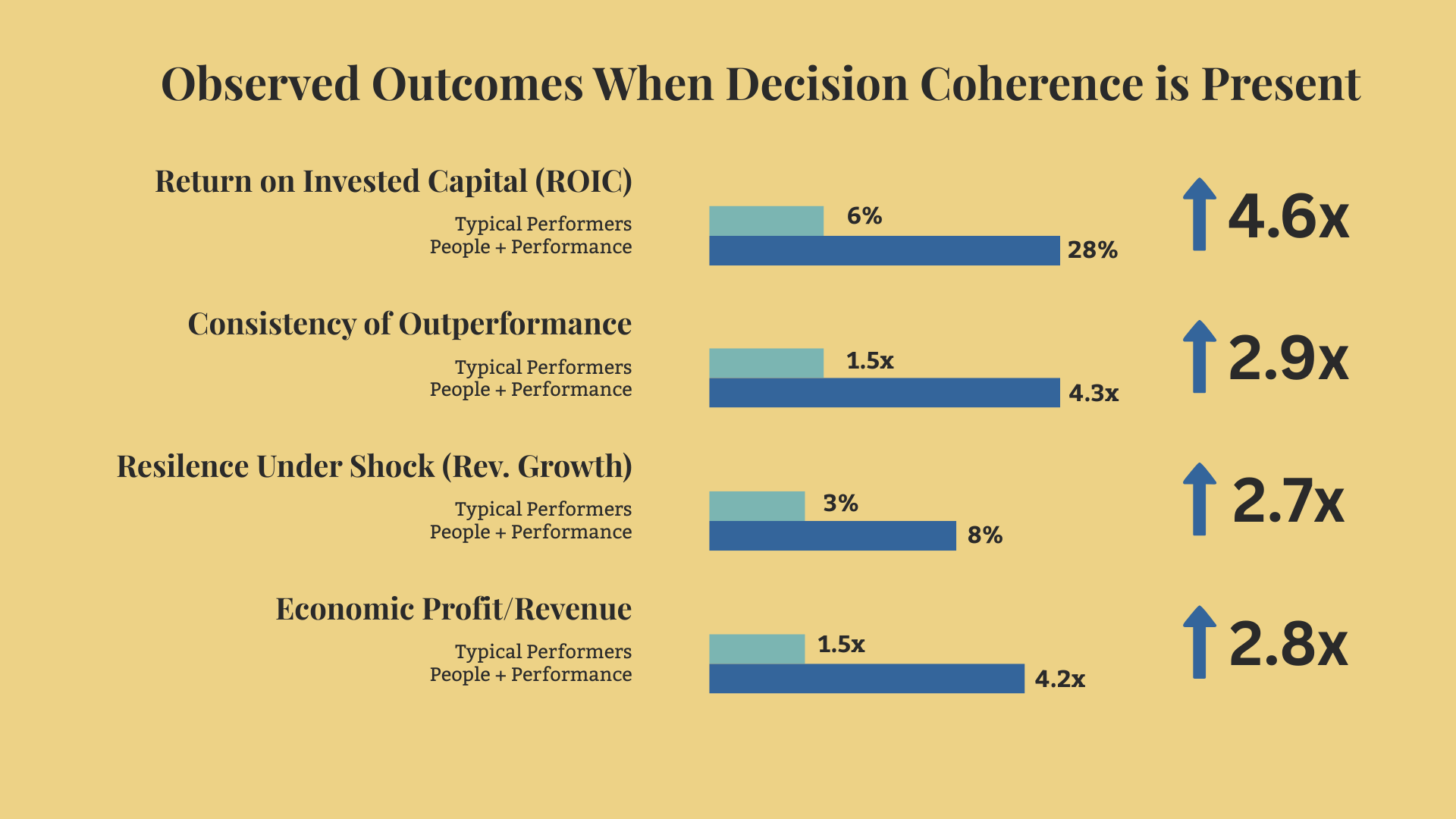Decentralization gave you efficiency.
It cost you authority.
We provide decision coherence for CEOs and boards operating in environments where complexity outpaces intuition, AI accelerates execution ahead of governance, and decision authority has disappeared into systems you can't see.
See how decision intelligence works.
Your avionics stopped working in 2024.
Complexity is beyond visibility now. Decision authority is decentralized across teams, vendors, platforms, and AI-driven workflows executing continuously—often ahead of governance. You think you have data, but you don't have decision visibility. You're at the mercy of the CEO of the CEO of the CEO and everyone’s APIs. But the worst part? These machines aren't even smart. You're just outnumbered.

We measure traits and adaptive capacity as infrastructure using only publicly available data.
Most companies wait until revenue flatlines or a key leader implodes to realize something's off. We don't. Stealth Dog maps decision behavior remotely and continuously—validated across 1.3 million businesses and 100+ million leadership profiles—so you can see drift while intervention is still inexpensive. It's always on, real-time, and non-invasive. No dashboards you have to remember to check. Just governance intelligence for environments too complex for intuition alone.
Across 1.3 million U.S. companies, roughly 6% consistently outperform by 3× or more in return on capital.
What separates them? They protect decision signal faster than noise accumulates. They maintain visibility on traits and adaptive capacity as infrastructure—not HR concepts, but governance variables. They preserve effective hierarchy so smart people stay in charge of smart people, even as teams scale and complexity multiplies. This doesn't happen by accident. It's a structural capability. And it's the only controllable lever when complexity is permanent.
The correction window has collapsed.
You need infrastructure that keeps pace.
We built Stealth Dog because the old playbook stopped working. Better meetings won't restore authority. More data won't give you visibility. And dashboards can't keep up with decisions executing at machine speed. What you need is always-on infrastructure that maps decision behavior in real time—so you can govern at the speed your business actually operates, not the speed intuition alone can handle.
Want to dig deeper?
Learn how we measure decision signal → What We Measure
See why traditional analytics miss this → Signal vs. Noise
Apply this to your organization → Contact Us



